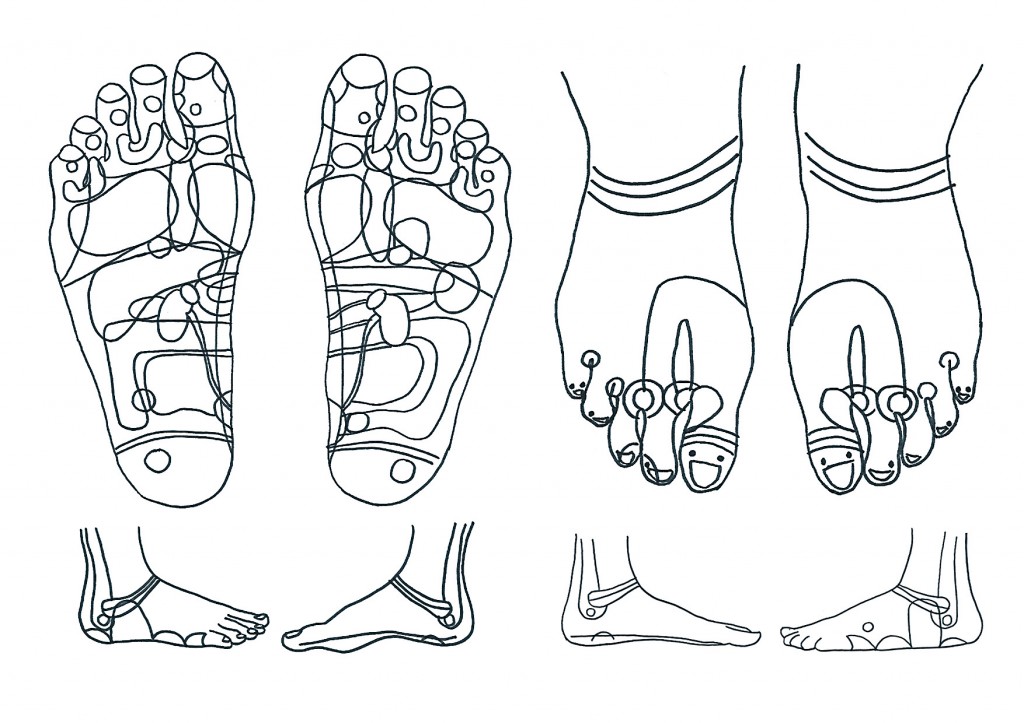Blogger Muireann Carey-Campbell from Bangs and a Bun writes about her first experience with Reflexology: www.bangsandabun.com/2014/11/trying-reflexology
Blogger Muireann Carey-Campbell from Bangs and a Bun writes about her first experience with Reflexology: www.bangsandabun.com/2014/11/trying-reflexology
Background and development
Stimulating specific areas on the hands and feet to promote health has been used as a tool in many civilisations, including those in India, China, Japan and Native America. The earliest specific evidence appears 4,500 years ago in Ancient Egypt on the tomb of physician Ankhmahor where pictures around the wall of his tomb illustrate the medical techniques he had at his disposal, including what appears to be both hand and foot reflexology.
In the West, the concept of “Reflexology” was a result of Europe’s great leap forward in scientific and medical knowledge in the 19th century with research into the nervous system and reflexes. Dr. William Fitzgerald, an American laryngologist, developed this knowledge and used wooden clothes pegs and elastic bands on the fingertips when carrying out minor surgery to block out pain. In 1917 he published the book ‘Zone Therapy’.
Physiotherapist Eunice Ingham, fascinated by the effects of zone therapy, experimented with her own patients and found that all those who had a disorder in a particular body part also consistently had sensitivity in the same area or point on the feet. In 1938 she developed a map of the reflexes on the feet.

In the East, Reflexology is a branch of the ancient Chinese practice Acupuncture that looks to balancing the vital energy ‘chi’ in a person along their energy channels ‘meridians’. It was re-discovered in the 1980s as a practice, and contributes to the increased research and number of practitioners today.
Popularity today
Learn how Reflexology may be as effective as painkillers according to this scientific survey.
During pregnancy, Reflexology can be a welcome support for the mother to be. I met Rebecca at the beginning of her third trimester of pregnancy. She was anxious and experienced daily discomfort from swollen feet and lower back pain.
In sessions we focused on reducing her physical symptoms and training her ability to breathe and relax which later became invaluable to help her through the labour and birth.
Here’s Rebecca’s experience in her own words:
“The labour was amazing. I loved it, which was a big change from the first time, which I had told you was induced and ultimately, a C-Section. Throughout my second pregnancy I was quite doubtful of myself and at times really fearful of labour. Eventually, the labour started naturally the night before my last appointment with you and I was just so excited that the baby was coming. I was full of confidence and really happy to ‘get to work’ as it was. Labour was long by any standards, and hard (by definition!). I did lose it a bit at times, but overall I must have held it together because my over-riding memory of it all was that it was the best feeling in the world! It was wild, and hard and I loved it.
I wholeheartedly put that confidence down to the work that we did together. I always said that sessions with you were extremely therapeutic, on so many levels. As you know, I recommended you to many people and selfishly wish you were still here because two of my neighbours are expecting and I think every pregnant woman should have access to a therapist of your calibre. Pregnancy is such an important time for a woman, and the moment when she is at her most vulnerable, physically, psychologically and socially. To have such great support made a huge difference to me, entering a new phase of my life.”